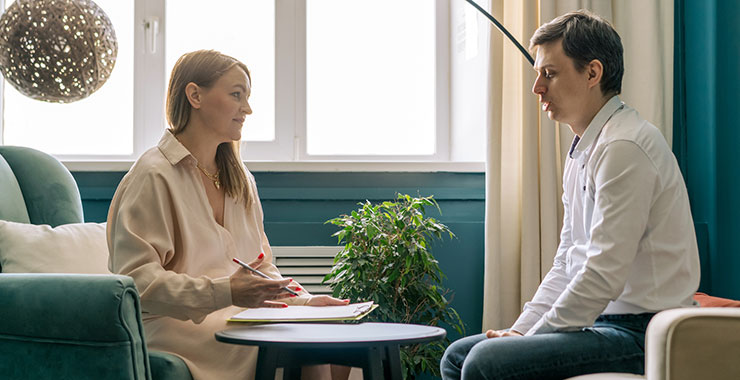Mental health has become a growing concern in modern society, with many individuals struggling to cope with the stresses and pressures of everyday life. However, advances in technology have opened up new possibilities for how we approach mental health, from mobile apps to virtual therapy sessions.
In this article, we will explore how technology is revolutionizing the way we approach mental health, providing insights into the latest developments, figures, and real-life examples of how technology is being used to improve mental health.
Also read: Why Ginger is a Superfood?
The Rise of Mental Health Apps
One of the most significant developments in recent years has been the rise of mental health apps, which are designed to provide support and guidance to individuals struggling with mental health issues. According to a report by Statista, there are currently over 10,000 mental health apps available on the App Store and Google Play, covering everything from mindfulness and meditation to anxiety and depression.

One example of such an app is Calm, which offers guided meditations, breathing exercises, and sleep stories to help users reduce stress and improve their mental well-being. Another example is Headspace, which provides a similar range of features, including guided meditations and mindfulness exercises.
The success of these apps is reflected in their user numbers. Calm has over 100 million downloads, while Headspace has over 70 million. These figures demonstrate the growing demand for technology-based mental health solutions, particularly among younger generations.
Virtual Therapy: A Game-Changer for Mental Health
While mental health apps have undoubtedly helped many people, they are not a substitute for professional therapy. However, advances in technology have made it possible to access therapy remotely, through virtual therapy sessions.

Virtual therapy offers numerous benefits over traditional face-to-face therapy. For one, it is more convenient, as individuals can access therapy from the comfort of their own homes. It is also more affordable, as there are no travel costs or overheads associated with running a physical therapy practice.
One example of a company that is leading the charge in virtual therapy is BetterHelp. The platform connects users with licensed therapists who offer virtual therapy sessions through video calls, phone calls, or messaging. According to the company’s website, over 2 million people have used the platform to access mental health support.
Also read: Cold Showers – Benefits for Health Enthusiasts
The Future of Mental Health and Technology
As technology continues to evolve, so too will our approach to mental health. In the future, we can expect to see even more advanced mental health apps and virtual therapy platforms that offer increasingly personalized and targeted support.

For example, some companies are already experimenting with AI-powered chatbots that can offer real-time support to individuals experiencing mental health issues. These chatbots use natural language processing to engage with users and provide support and guidance.
Another area where technology is likely to play a significant role in mental health is in the use of wearables. Wearable devices such as smartwatches and fitness trackers are already being used to monitor physical health indicators such as heart rate and blood pressure. In the future, they may also be able to track mental health indicators such as stress levels and mood.
Conclusion
In conclusion, technology is revolutionizing the way we approach mental health, from mobile apps to virtual therapy sessions. The rise of mental health apps and virtual therapy platforms has opened up new possibilities for how we can access support and guidance for mental health issues. While there is still much work to be done to ensure that these solutions are accessible to all, the future looks promising, with advances in AI and wearables set to further transform the mental health landscape.



